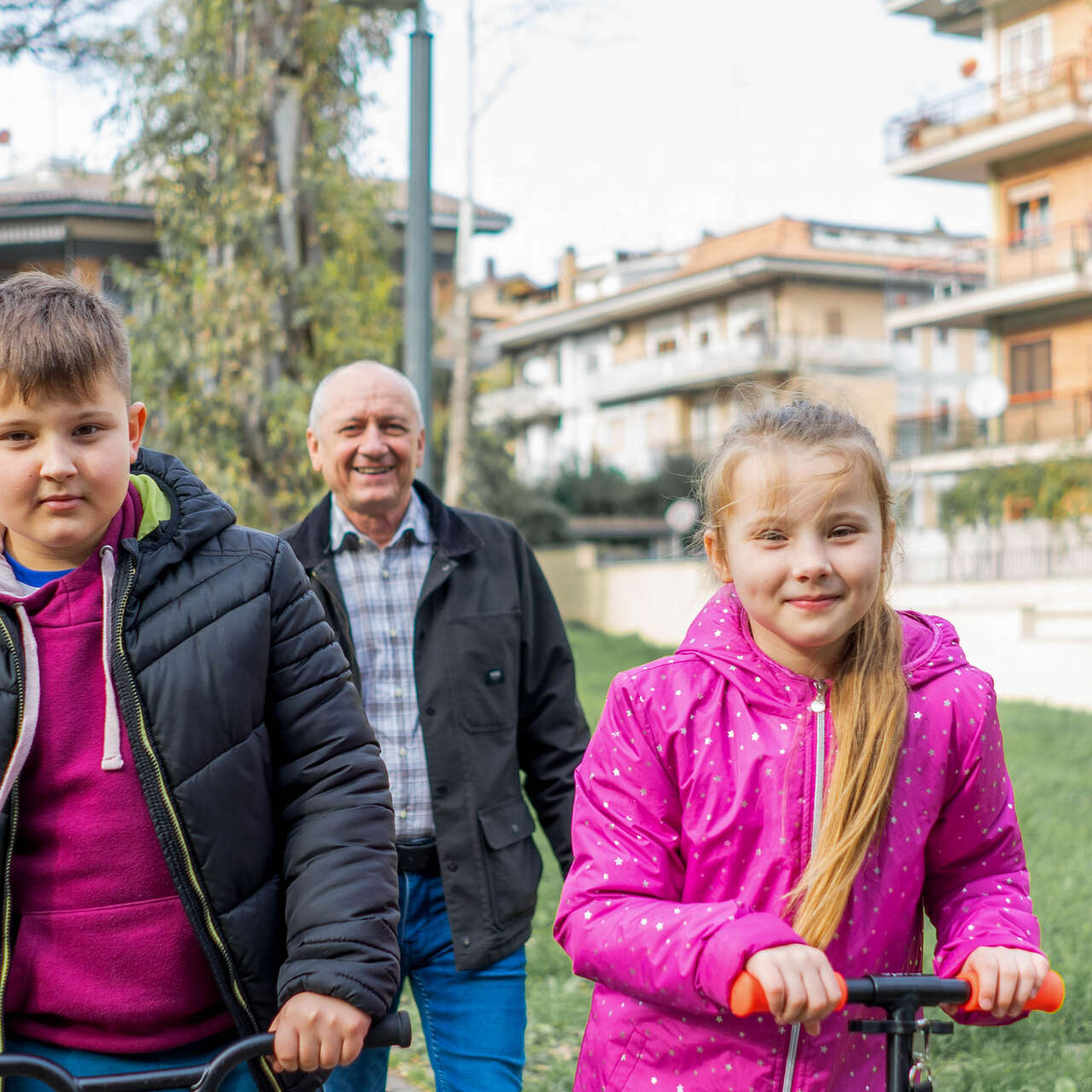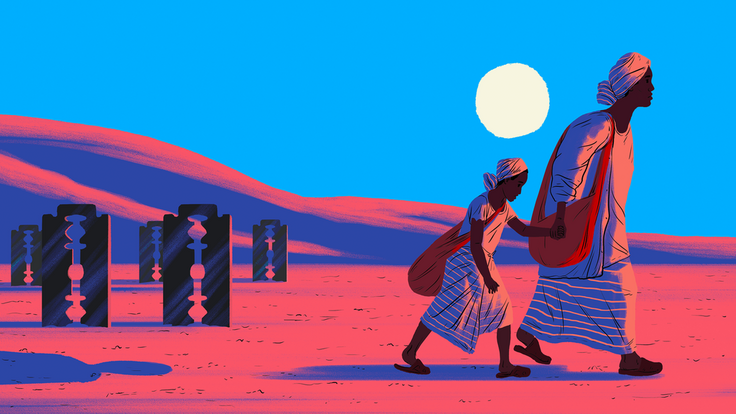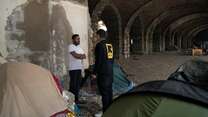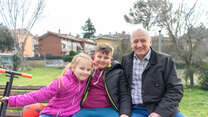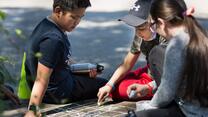Country facts
- Population: 60.6 million
- Over 700,000 asylum seekers and migrants arrived in Italy from 2014-2020
- Rank in Human Development Index: 30 of 191
IRC response
- Started work in Italy: November 2017
Italy is at the center of the European refugee crisis. The IRC works across the regions of Lombardy, Sicily, Lazio, Piedmont, Campania, and Friuli Venezia Giulia working to enhance refugees’ safety, power, education, economic empowerment and mental health - with a focus on the most vulnerable, including women and children.
Increasing numbers of arrivals
In 2022, 105,129 people reached Italy through dangerous sea routes – 37,652 more than in 2021, amounting to a 56% increase. This follows the 98% increase in the number of arrivals observed in 2021 compared to 2020.
In the first two months of 2023, 14,433 sea arrivals were recorded, already registering an increase of 164% compared to the same period in 2022.
As of February 2023, Italy hosts 19,422 unaccompanied children - a significant number and 8,221 more than the same period in 2022.
The number of people arriving through the Balkan route kept growing in 2022. Already in 2021 this number had doubled, with almost 9,400 people arriving by land from Slovenia compared to 4,100 people who arrived in 2020.
Even if no official national data is available on arrivals by land in Italy, in 2022 the IRC's team in Trieste reached 13,126 refugees entering from Slovenia, and 4,248 in the first 5 months of 2023.
Responding to the Ukraine Crisis
In 2022, Italy became also one of the main destination countries within the European Union for refugees fleeing Russia’s invasion of Ukraine. At the end of December 2022, the Italian Ministry of Interiors had recorded about 173,589 Ukrainian refugees’ entries in Italy - mostly women (53%) and children (28%) since all able-bodied men between 18-60 have been barred from leaving Ukraine due to conscription.
The IRC's work in Italy
The IRC is responding to these ongoing crises with a three-folded strategy including:
direct support to clients;
- capacity building of civil society organizations;
- system strengthening of local processes and institutions.
Actions cover the impacted regions of Lombardy, Sicily, Lazio, Piedmont, Campania, and Friuli Venezia Giulia, and aim to enhance refugees’ safety, power, education, economic empowerment and mental health - with a focus on the most vulnerable, including women and unaccompanied children (UAC).
The IRC's areas of focus in Italy include:
Women and girls, among refugees, asylum seekers and migrants newly arrived in Italy, face severe risks and challenges. They range from gender-based violence, trafficking, sexual exploitation, to discrimination based on origins and legal status, difficult living conditions in reception centers, social isolation, and lack of access to resources and jobs.
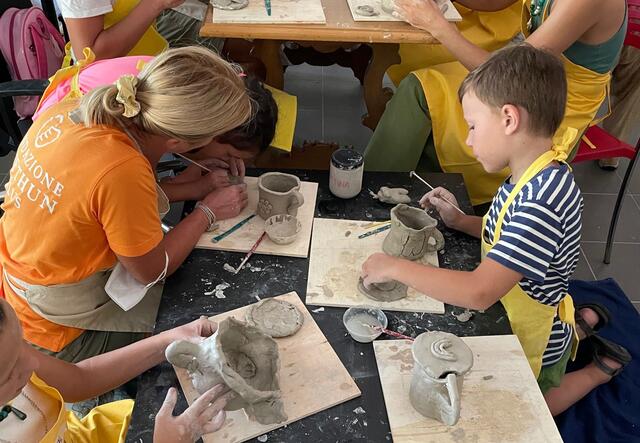
Across Italy, service provider systems, methods and approaches are designed intrinsically to respond to the needs of Italian nationals and long-term residents. Since 2019, the IRC has partnered with local organizations to set up Women and Girls Safe Spaces (WGSS) in Rome, Palermo, Milan, Turin and Trieste. The WGSS approach is an evidence-based methodology where migrant women and girls can be engaged in creative activities and access psychological and case management services, supporting the development of social networks and promoting empowerment in a safe environment for them and their children.
In collaboration with Centro Penc and UNICEF, we are building the capacity of other local organizations in Italy and in Europe to prevent and respond to gender-based violence and empower women by training them in WGSS principles, providing technical guidance, as well as fostering exchanges by setting up a dedicated Community of Practice.
Moreover, the IRC is strengthening the capacity of local actors and professionals working to support clients equipping them with skills needed to support them and communicate with them using trauma-informed and transcultural lenses.
Thanks to roving teams of psychologists, case workers and cultural mediators, the IRC also performs vulnerability triaging and provides holistic case management services to promote clients’ well-being and safety and facilitate their early integration.
Since January 2023, IRC has taken over a mental health and psychosocial support (MHPSS) project for people fleeing Ukraine, mainly women and children, who are hosted in Rome's hotels dedicated to emergency reception for refugees. Here the multidisciplinary IRC team provides psychological first aid (PFA) and promotes access to health and other relevant services. Almost 150 unique beneficiaries have been supported in less than 6 months.
Soon the intervention of roving teams will be integrated by the opening of a new Clinical Center with transcultural approach and a new Safe Space, in the area of Ciampino (province of Rome).
Since May 2022, 501 unique beneficiaries have been reached through Safe Spaces and case management services. Furthermore, in Milan the IRC collaborates with Centro Penc to provide free ethno-psychiatric services, individual support and follow-up for migrants and asylum seekers, who have experienced traumatic situations before and during their journey to Italy.
Italy is one of the most impacted European countries by human trafficking, where it is as hidden as a widespread phenomenon. Human trafficking can happen for various purposes, including labor or sexual exploitation and often affects the most vulnerable groups, such as women and unaccompanied children.
Since 2021, IRC is working with several partners in Italy and Europe - including Red Cross, BeFree and anti-trafficking bodies - to enhance cross-sectoral practitioner capacity for early identification of trafficking survivors, as well as to strengthen the assistance for survivors ensuring trauma-informed care and ‘do no harm’.
The FAST (Foster Action and Support to Trafficked persons) project which ended in February 2023 aimed to strengthen the cooperation between partner organizations to reinforce the capacity to prevent the trafficking phenomenon and to improve the support to the potential victims and survivors. Thanks to European Union funds, prevention of sexual and gender-based violence has been intensified in recent years.
To enhance protective factors and prevent the risk of (re)trafficking and labor exploitation, the IRC has been providing over 100 unaccompanied boys and girls with accurate and actionable information on their rights in Italy and where to seek support, as well as facilitated access to available services.
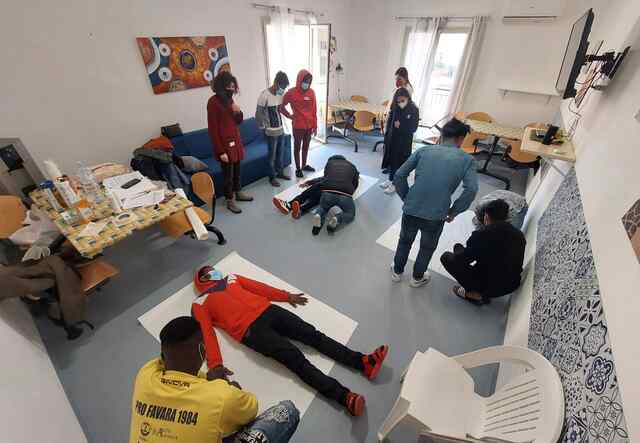
In 2023, IRC will continue to offer direct support to unaccompanied children and women at risk of trafficking and labor exploitation, as well as empower migrant-led organizations and equipping them with the skills and knowledge required to better support vulnerable groups.
Education is a right and key to a bright future, and displaced children often face difficulty in accessing and integrating into schools. The IRC partners with local education systems to enhance educators’ capacity to create environments that foster children's well-being and holistic development in safe, welcoming, and child-friendly settings. A particular focus is devoted to children experiencing or at risk of adverse childhood experiences, such as migrant and refugee children - by developing educational contexts where it is possible to identify and effectively respond to their needs and challenges.
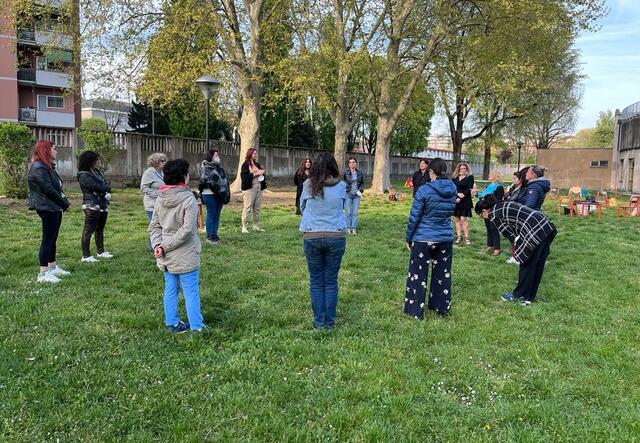
The IRC Holistic Educational Approach offers tools, strategies and a range of practical activities to support educators, teachers and practitioners in enhancing children's positive and holistic development through essential cognitive and social-emotional skills, while embracing a transcultural perspective when working with children and families from different backgrounds and cultures.
Thanks to a long-lasting partnership with the Municipality of Milan, since 2021 over 900 educators, primary school teachers and school managers have been trained and supported by the IRC.
Economic empowerment is key to successfully promoting integration from the early stages and allow asylum-seekers to rebuild their lives and thrive in their new communities.
Since 2020, IRC in Italy works with refugees, migrants, and vulnerable populations to overcome barriers to entry into complex and unfamiliar job markets while ensuring that local community members see the value newcomers can bring to their economy. IRC prioritizes the most disadvantaged population groups, including unaccompanied children and women, and works to support clients to achieve initial self-sufficiency and economic mobility over time.
Pillars of the economic assistance include:
- distribution of cash vouchers to cover basic immediate needs of new arrived refugees;
- one-to-one support;
- social-emotional support, as well as basic and advanced digital skills for labor inclusion.
IRC has also supported migrant and refugee entrepreneurs by providing training on local business systems and financing options, including market analysis, business plan development, and networking support.
Moreover, building upon its global expertise, IRC supports municipal job centers and other public employment service providers to ensure that newcomers can access labor market opportunities by offering capacity-building activities and assistance to develop specialised services for refugees and migrants, including cultural/language competency training, trauma-informed service training, support for building outreach activities to clients and to employers in the private sector.
Access to information is critical for displaced communities to make informed decisions and stay safe. Since 2018, IRC’s digital information service Refugee.Info (RI), part of Signpost, has provided refugees and migrants with multilingual, accessible, actionable and accurate information nationwide.
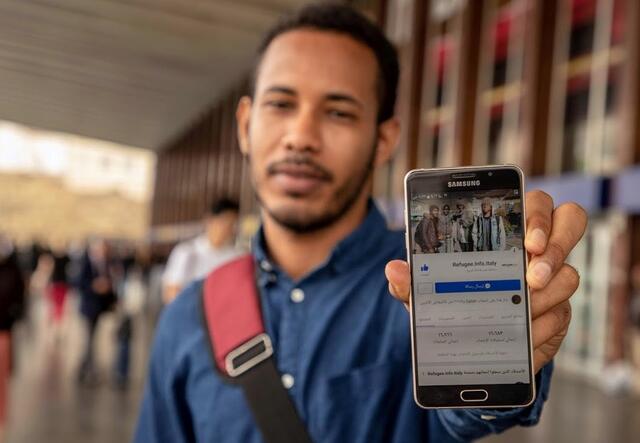
Through instant messaging apps, social media and a website, we respond to clients’ information needs about their rights, documents, safety, support services and how to adjust to their lives in Italy.
Through accessible digital channels and a peer-to-peer approach, RI provides timely, actionable, and accurate information, aiming to help communities regain the power to make informed decisions about their lives.
In 2022, 3.855 clients contacted Refugee.Info direct support, and around 41,000 accessed the website. In addition, our Facebook community counts 46.6k followers and 25.7k group members. The service is currently available in English, French, Dari/Farsi, Pashto and Ukrainian.
Initially set up in late 2021 as part of the emergency response to the crisis in Afghanistan, IRC consolidated protection programming to support asylum seekers and people on the move arriving in Trieste through the Balkan Route.
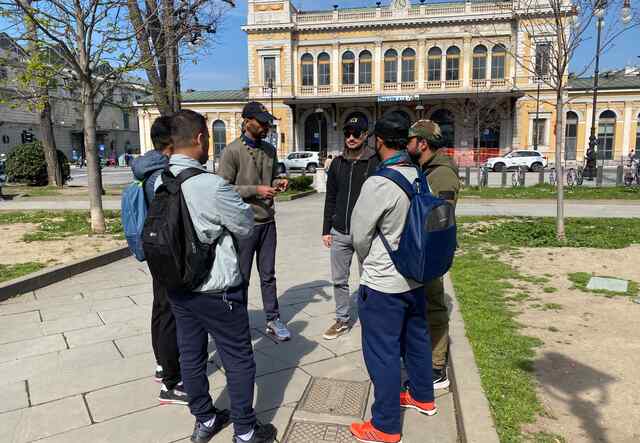
Between January 2022 and May 2023, IRC supported 17,375 newly arrived people with Non-Food Items (NFIs), legal orientation on their rights in Italy, connectivity, as well as facilitated access to crucial services as food (soup kitchen), medical care, overnight shelter, legal helpdesk, etc. The IRC also facilitated access to the asylum procedure and reception.
To ensure sustainability of the response, capacity building sessions in the field of protection and psychosocial support are offered in partnership with Centro Penc to a number of organizations active across the region.
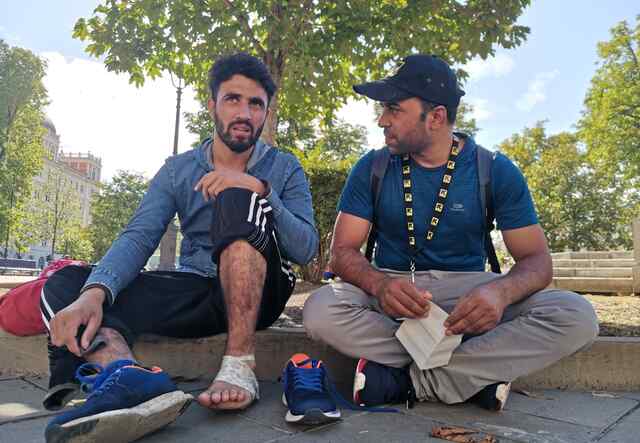
As part of the response, IRC has also been monitoring information needs and protection concerns of refugees and people in transit, to better respond to needs, improve protection programming, and to advocate for people’s rights with local and national institutions. IRC has also promoted the creation of a coordination mechanism that involves local and national NGOs with the aim of making better use of resources, creating common operational procedures, monitoring flows and trends, and acting accordingly.
Since June 2022, IRC Italy has been strengthening its advocacy efforts to ensure that migrants and refugees’ rights are respected and upheld. Thanks to monitoring systems put in place in coordination with local actors, IRC has been able to monitor the obstacles that individuals seeking international protection face in formalizing their application and accessing the reception system in breach of the EU and Italian legal frameworks - and, when possible, facilitate swift access to the asylum procedure and accommodation.
Data and information collected at the field level is used to feed into IRC evidence-based advocacy priorities. In particular, IRC has contributed to discussions with institutional representatives to strengthen the reception and integration system for asylum seekers and refugees, both at local and national level. In response to the Ukrainian crisis, IRC has been interacting with institutional stakeholders to report uneven and discriminatory institutional practices towards both Ukrainians and non-Ukrainians and ultimately ensure that Ukrainians in Italy are able to claim and exercise their rights. Moreover, IRC has been contributing to joint advocacy initiatives by joining national and local networks including the Tavolo Asilo e Immigrazione (Asylum and Immigration Network) and working groups coordinated by UNHCR. Joint advocacy initiatives carried out within these groups have touched upon several issues, including selective disembarkation practices, policies for NGO rescue vessels and changes to the national protection legal framework.
The IRC is also part of the National Coordination Platform on Health and Migration (GrIS).
14,604
people provided support and information on their rights in Italy by the IRC last year.
The IRC team in Italy tracked and supported nearly 15,000 people with connectivity, non-food items, and accurate information on their rights in Italy via Refugee.Info.
501
women and girls have taken part in IRC Italy's Safe Spaces events and case management services.
Additionally, the IRC collaborates with Centro Penc in Milan to provide free ethno-psychiatric services, individual support and follow-up for migrants and asylum seekers, who have experienced traumatic situations before and during their journey to Italy.
100
unaccompanied children provided with information and support on their rights in Italy.
Our services aim to enhance protective factors and prevent the risk of (re)trafficking and labor exploitation of unaccompanied boys and girls.
In 2023, IRC will continue to offer direct support to unaccompanied children and women at risk of trafficking and labor exploitation, as well as empower migrant-led organizations and equipping them with the skills and knowledge required to better support vulnerable groups.
